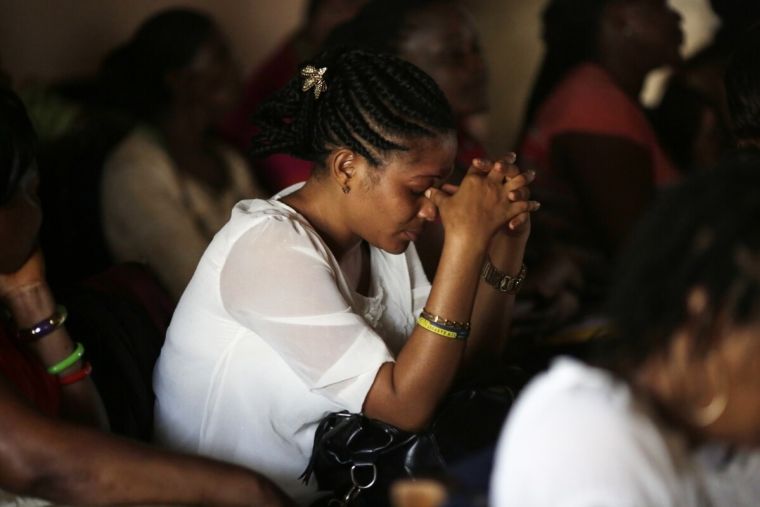Two years after Ebola hit Sierra Leone, faith leaders testify to God's grace

A Christian Aid film on the second anniversary of the outbreak of Ebola contains harrowing stories of those affected and stresses the role of faith leaders in controlling the epidemic.
Around 4,000 people died of the disease before the outbreak was declared over in November 2015. A new case was confirmed in January 2016.
However, faith leaders were at the forefront of combating Ebola and remain active in caring for survivors and the bereaved.
The 10-minute film quotes Fr Peter Conteh, who describes being called to a household struck by Ebola.
"We went there and already the mum and the dad were dead," he says. "But there was a six-year-old child we met there in the house who was stretching her hands to us, but we couldn't at that moment – it was dangerous, we weren't sure what to do – we gave food, and we were pestering the response team to come. "
The ambulance came two days later to find the child had died.
"I went home in tears, what could I have done? This girl was stretching out her hands and I was helpless," Conteh says.
The outbreak left 12,000 orphans in the country. One speaks in the film of trying to care for his father, mother and brother, all of whom died leaving him alone. He is being cared for in a church-run orphanage. But one of the workers speaks of their work to give the children hope and to demonstrate the love of God: "Even though they will have their stories, when they grow old they will know someone cared for them."
Another consequence of the outbreak was a huge rise in teenage pregnancies, which rose by 65 per cent. Rev Christiana Sutton-Koroma is filmed delivering a sex education class to young girls. She says that because schools were closed and girls found themselves forced to provide for their families with no outside support, they were vulnerable to approaches by men offering them money for sex.
Sutton-Koroma says: "You cannot succeed in any activity without engaging the religious leaders. We are trusted voices."
Faith groups are also helping survivors suffering from enduring stigma, with people believing they are still infectious, and others suffering continuing physical and mental problems from the disease.
The film highlights Sierra Leone's poor health system – at the time of the outbreak it had only 136 doctors for its 6 million people, 12 of whom died of Ebola.
Fr Conteh says: "Ebola is finished but it is not over. When you are off the camera you are forgotten, but this is the time we need support most, not only when there is bad news but when there is good news, helping developing people, helping restore their smiles and hope again."











